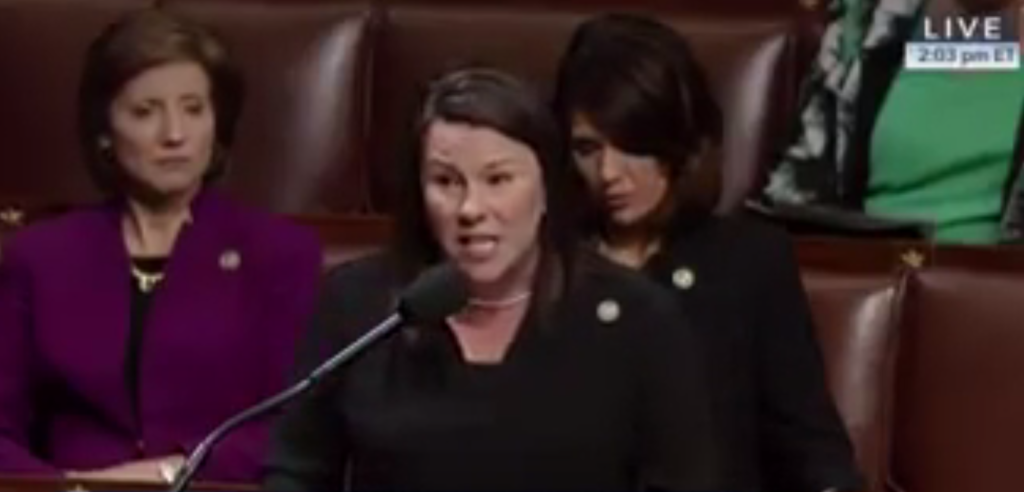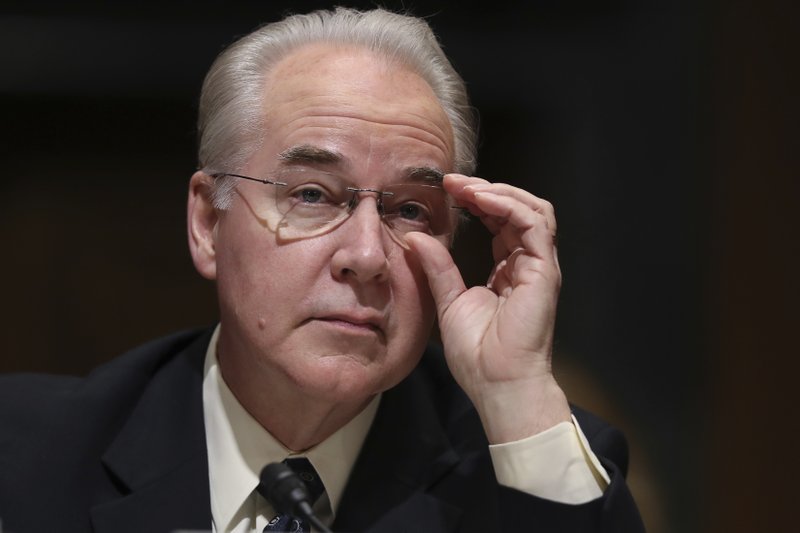Bill to raise tobacco age has unlikely allies: Altria, Juul

Congress is moving to pass the biggest new sales restrictions on tobacco products in more than a decade, with support from two unlikely backers: Marlboro-cigarette maker Altria and vaping giant Juul Labs. The legislation would raise the minimum age to purchase all tobacco products, including electronic cigarettes, from 18 to 21 nationwide, a step long-sought by health advocates. But in the past year Juul and Altria have emerged as the biggest supporters of the measure, blanketing Capitol Hill with lobbyists and advertisements touting their support for a national “Tobacco 21” law. Tobacco critics contend the companies’ support is calculated to head off even harder-hitting government action: a ban on all flavored tobacco products, including fruit and dessert e-cigarettes. Their stance puts them in the unusual position of criticizing a move they long supported, arguing that the sales restriction isn’t enough. “Altria and Juul clearly support this in order to argue that no other action is necessary,” said Matthew Myers of the Campaign for Tobacco-Free Kids. “If you don’t eliminate the flavors that the industry has used to fuel the epidemic, you won’t solve the youth e-cigarette crisis.” The bipartisan legislation, supported by Senate Majority Leader Mitch McConnell of Kentucky, has been attached to a package of must-pass spending bills that will keep the government running into next year. Juul and Altria — the vaping company’s biggest investor — threw their support behind the bill earlier this year amid a backlash against e-cigarettes at the local, state and national levels. E-cigarettes are battery-powered devices that typically heat a flavored nicotine solution into an inhalable aerosol. Current federal law prohibits sales of e-cigarettes and all other tobacco products to those under 18. But more than one in four high school students report vaping regularly, according to the latest government figures. And health officials have called the vaping trend an “epidemic.” Until September, Juul argued that its sweet flavors — including mango, mint and fruit — could help adult smokers switch from traditional cigarettes to vaping. But the company dropped that message as President Donald Trump announced plans to remove virtually all vaping flavors from the market, due to their appeal to children. The Silicon Valley company has halted sales of all but two of its flavors, menthol and tobacco, and pledged not to oppose Trump’s plan. But momentum for the nationwide ban has faded amid push-back from vaping advocates and some conservative groups. And Trump has voiced support for alternative approaches to keep e-cigarettes away from kids, including raising the purchase age to 21. The age hike is expected to limit the supply of all vaping and tobacco products in high schools by putting them out of reach to 12th graders. Myers’ group and other health advocates say Congress should both raise the age limit and ban all “kid-friendly” flavors. Even with most of Juul’s flavors off the market, smaller companies continue to market an array of flavored products, including “grape slushie,” “strawberry cotton candy” and “sea salt blueberry.” And the industry’s main trade association is suing to keep e-cigarettes, including flavors, widely available. Altria, the nation’s largest tobacco company, said it supports a “clean” Tobacco 21 bill — focused exclusively on raising the age limit — because it is the “quickest and most effective” way to address the recent surge in teen vaping. For decades previously, Altria and other tobacco companies aggressively defended the 18-year-old minimum purchase age. Juul has similarly supported legislation that raises the purchase age without touching flavors. And while the companies say they lobby separately, both quickly backed the Tobacco 21 bill introduced in May by McConnell and Virginia Democratic Sen. Tim Kaine. The companies’ support sapped attention away from other proposals that would have gone much further. For example, a bill from New Jersey Democratic Rep. Frank Pallone would have raised the purchase age to 21 and banned flavors from all vaping and tobacco products — including menthol cigarettes — and prohibited online sales. The bill was endorsed by a dozen health groups including the American Academy of Pediatrics, the American Cancer Society and the American Lung Association. “Flavors attract kids and kids are the tobacco industry — including the e-cigarette industry’s — future,” said Erika Sward, a vice president with the American Lung Association. But efforts to advance flavor restrictions in the Senate fell flat, including a bill sponsored by Sen. Lisa Murkowski, Republican-Alaska, and Sen. Dick Durbin, Democrat-Illnois, that was withdrawn from committee consideration at the last minute. “Because I wasn’t certain that I had the votes at the time,” Murkowski told The Associated Press. “You don’t want to lose.” The logic for hiking the purchase age for cigarettes is clear: most underage teens who use tobacco get it from older friends. An estimated 90 percent of smokers start before age 18. Delaying access to cigarettes is expected to produce major downstream health benefits, with one government-funded report estimating nearly 250,000 fewer deaths due to tobacco over several decades. Still, anti-tobacco experts say age restrictions are only effective when they are vigorously enforced, and tobacco sales can fall through the cracks amid a patchwork of local, state and federal law enforcement. They point to underage drinking as an example of the limited impact of age-based restrictions. State laws banning tobacco sales to those under 18 evolved over several decades and were reinforced by a federal law in 2009. The same law banned all flavors from traditional cigarettes except menthol, which received a special exception at the behest of tobacco lobbyists. More than a third of U.S. states — including California, Illinois, New York and Texas — and the District of Columbia have already raised their minimum purchase age to 21. Anti-smoking groups have tracked the trend with measured support, noting the role of Juul and Altria lobbyists behind many of the efforts. In several cases, anti-tobacco advocates have flagged provisions that they say undercut the state laws’ effectiveness. These provisions, known as pre-emption, can stop city and county officials from imposing stricter tobacco
Donald Trump, GOP to huddle as outrage builds over border policy

Calls are mounting on Capitol Hill for the Trump administration to end the separation of families at the southern border ahead of a visit from President Donald Trump to discuss legislation. Trump’s meeting late Tuesday afternoon with House Republicans comes as lawmakers in both parties are up in arms over the administration’s “zero tolerance” approach to illegal border crossings. Under the policy, all unlawful crossings are referred for prosecution — a process that moves adults to the custody of the U.S. Marshals Service and sends many children to facilities run by the Department of Health and Human Services. Under the previous administration, such families were usually referred for civil deportation proceedings, not requiring separation. Nearly 2,000 children were separated from their families over a six-week period in April and May. The fight is erupting as the House is already embroiled in an election-year struggle over immigration legislation that threatens to hurt Republicans in November. Democrats have seized on the family separation issue, swarming detention centers in Texas to highlight the policy. They are demanding that the administration act to keep migrant families together. Republicans are increasingly joining Democrats in that call. Michigan Republican Rep. Fred Upton called for an immediate end to the “ugly and inhumane practice,” adding, “It’s never acceptable to use kids as bargaining chips in political process.” Kansas GOP Sen. Pat Roberts said he is “against using parental separation as a deterrent to illegal immigration.” “The time is now for the White House to end the cruel, tragic separations of families,” Sen. Lisa Murkowski, R-Alaska, said in a statement. The Trump administration insists the family separations are required under the law. But after signaling Monday that it would oppose any fix aimed solely at addressing the plight of children separated from their parents under the crackdown, the White House said Tuesday that it is reviewing emergency legislation being introduced by Sen. Ted Cruz, R-Texas, to keep migrant families together. Asked if the White House supports the Cruz measure, Mercedes Schlapp, director of strategic communications, told reporters “we’re looking into the legislative text on the Cruz bill.” The senator’s bill would add more federal immigration judges, authorize new temporary shelters to house migrant families, speed the processing of asylum cases and require that families that cross the border illegally be kept together, absent criminal conduct or threats to the welfare of any children. At a White House briefing Monday, Homeland Security Secretary Kirstjen Nielsen declared, “Congress alone can fix it.” That line has been echoed by others in the administration, including Trump, who has falsely blamed a law passed by Democrats for the “zero tolerance” approach to prosecutions of families crossing the border. Two immigration bills under consideration in the House could address the separations, but the outlook for passage is dim. Conservatives say the compromise legislation that GOP leaders helped negotiate with moderates is inadequate. Rep. Jim Jordan, R-Ohio, a member of the Freedom Caucus, said he’s skeptical that even a full-throated endorsement from Trump will be enough to get the compromise bill through the House. The compromise bill shifts away from the nation’s longtime preference for family immigration to a new system that prioritizes entry based on merits and skills. It beefs up border security, clamps down on illegal entries and reinforces other immigration laws. To address the rise of families being separated at the border, the measure proposes keeping children in detention with their parents, undoing 2-decade-old rules that limit the time minors can be held in custody. Rep. Dave Brat, R-Va., another Freedom Caucus member, said he expects the GOP compromise bill to be defeated if it reaches the floor. “There’s not enough votes because it doesn’t solve the problem,” he said. Faced with the prospect of gridlock in the House, senators appear willing to take matters into their own hands. Sen. John Cornyn of Texas, the No. 2 Republican leader, said Senate Republicans are working on language to address the family separations that could receive a floor vote, potentially as part of a spending bill package. “I don’t think the answer to family separation is to not enforce the law. I think the answer to family separation is: Don’t separate families while you’re enforcing the law,” Cornyn told reporters. “It’s all within our power, and people have to overcome their desire to preserve an issue to campaign on.” Sen. Chuck Grassley of Iowa, the Republican chairman of the Judiciary Committee, said he wants to do away with a legal settlement that requires the government to release children from custody and to their parents, adult relatives or other caretakers, in order of preference. GOP senators including Lindsey Graham of South Carolina, Jeff Flake of Arizona and Susan Collins of Maine also said they’ve been discussing family separation legislation. Graham told reporters the measure would keep migrant families together, provide additional judges so detained families would face shorter waiting periods, and supply facilities for the families to stay. He said he did not know how much the proposal would cost. The administration, meanwhile, is hoping to force Democrats to vote for the bills or bear some of the political cost in November’s midterm elections. Democrats brushed aside that pressure. “As everyone who has looked at this agrees, this was done by the president, not Democrats. He can fix it tomorrow if he wants to, and if he doesn’t want to, he should own up to the fact that he’s doing it,” said Senate Democratic leader Chuck Schumer of New York. Senate Democrats have rallied behind an immigration bill from Sen. Dianne Feinstein, D-Calif. Her bill would prohibit the separation of migrant children from their parents, with exceptions for findings of child abuse or trafficking. If separations occur, Homeland Security would have to provide clear guidelines for how parents can contact their kids. One House Republican in a swing district, Rep. Mike Coffman of Colorado, said he’s willing to endorse the Feinstein bill if that’s what it takes. “I reached out to Sen. Feinstein’s office
Donald Trump to deny funds to clinics that refer for abortion

The Trump administration will resurrect a Reagan-era rule that would ban federally funded family planning clinics from referring women for abortions, or sharing space with abortion providers. The Department of Health and Human Services will announce its proposal Friday, a senior White House official said Thursday, speaking on condition of anonymity because the official was not authorized to confirm the plans before the announcement. The policy has been derided as a “gag rule” by abortion rights supporters and medical groups, and it is likely to trigger lawsuits that could keep it from taking effect. However, it’s guaranteed to galvanize activists on both sides of the abortion debate ahead of the congressional midterm elections. The Reagan-era rule barred family planning clinics from discussing abortion with women. It never went into effect as written, although the Supreme Court ruled that it was an appropriate use of executive power. The policy was rescinded under President Bill Clinton, and a new rule went into effect that required “nondirective” counseling to include a range of options for women. According to a Trump administration summary, the new proposal will roll back the Clinton requirement that abortion could be discussed as an option along with prenatal care and adoption. Abortion is a legal medical procedure, but federal family planning funds cannot be used to pay for abortion procedures. Abortion opponents say a taxpayer-funded family planning program should have no connection to abortion. Doctors’ groups and abortion rights supporters say a ban on counseling women trespasses on the doctor-patient relationship. “The notion that you would withhold information from a patient does not uphold or preserve their dignity,” said Jessica Marcella of the National Family Planning & Reproductive Health Association, which represents family planning clinics. “I cannot imagine a scenario in which public health groups would allow this effort to go unchallenged.” She said requiring family planning clinics to be physically separate from facilities in which abortion is provided would disrupt services for women across the country. But Kristan Hawkins of Students for Life of America said, “Abortion is not health care or birth control and many women want natural health care choices, rather than hormone-induced changes.” Abortion opponents allege the federal family planning program in effect cross-subsidizes abortion services provided by Planned Parenthood, whose clinics are also major recipients of grants for family planning and basic preventive care. Hawkins’ group is circulating a petition to urge lawmakers in Congress to support the Trump administration’s proposal. Known as Title X, the nation’s family-planning program serves about 4 million women a year through clinics, at a cost to taxpayers of about $260 million. Planned Parenthood clinics also qualify for Title X grants, but they must keep the family-planning money separate from funds used to pay for abortions. The Republican-led Congress has unsuccessfully tried to deny federal funds to Planned Parenthood, and the Trump administration has vowed to religious and social conservatives that it would keep up the effort. Republished with permission from the Associated Press.
Donald Trump’s VA choice bows out in latest Cabinet flame-out

President Donald Trump’s White House doctor reluctantly withdrew his nomination to be Veterans Affairs secretary Thursday in the face of accusations of misconduct, the latest embarrassing episode highlighting Trump’s struggles to fill key jobs and the perils of his occasional spur-of-the-moment-decision-making. The weeks-long saga surrounding the nomination of Navy Dr. Ronny Jackson leaves the government’s second-largest agency without a permanent leader while it faces an immediate crisis with its private health care program. And it abruptly tarnished the reputation of a doctor beloved by two presidents and their staffs. White House officials say they are taking a new look at the way nominees’ backgrounds are checked — and they believe they will persuade Trump to take additional time to ensure that a replacement is sufficiently vetted. The leading person now under consideration for the VA post is former Rep. Jeff Miller, who chaired the House Veterans Affairs Committee before retiring last year, according to White House officials. Miller is a strong proponent of expanding private care for veterans, a Trump priority. Trump quickly selected Jackson, a rear admiral in the Navy, to head the VA last month after firing Obama appointee David Shulkin following accusations of ethical problems and a mounting rebellion within the agency. Jackson, a surprise choice who has worked as a White House physician since 2006, faced immediate questions from Republican and Democratic lawmakers as well as veterans groups about whether he had the experience to manage the massive department of 360,000 employees serving 9 million veterans. Then this week’s unconfirmed allegations by current and former colleagues about drunkenness and improper prescribing of controlled substances, compiled and released by Democrats, made the nomination all but unsalvageable. “The allegations against me are completely false and fabricated,” Jackson said in a statement announcing his withdrawal. Press secretary Sarah Huckabee Sanders said Jackson was back at work at the White House on Thursday. But his future there remains uncertain. He had stepped aside from directing Trump’s medical care and leading the medical unit while his nomination was being considered. “I would hope the White House would closely consider whether he is the best person to provide medical care for the president,” said Democratic Sen. Chris Coons of Delaware. Trump himself praised Jackson, saying, “He’s a great man, and he got treated very, very unfairly.” Then the president went after Democratic Sen. Jon Tester of Montana, who released a list of allegations against Jackson that was compiled by the Democratic staff of the Senate Veterans Affairs Committee. Trump aides said the president was furious with Tester, who faces a tough re-election fight this fall, and plans to aggressively campaign against him. “I think Jon Tester has to have a big price to pay in Montana,” Trump warned on “Fox & Friends” on TV. Tester, meanwhile, called on Congress to continue its investigation of Jackson. “I want to thank the service members who bravely spoke out over the past week. It is my constitutional responsibility to make sure the veterans of this nation get a strong, thoroughly vetted leader who will fight for them,” he said. Elsewhere in the capital, Congress was questioning another Trump official whose job appears in jeopardy. Scott Pruitt, head of the Environmental Protection Agency, was questioned closely by House Democrats about revelations of unusual security spending, first-class flights, an advantageous condo lease and more. Even Republicans who support Pruitt’s deregulation efforts, said his conduct needed scrutiny. Tom Price, Trump’s first secretary of the Department of Health and Human Services, resigned last year after criticism of his use of private charter flights and military jets. The turmoil at the VA comes as it faces a budget shortfall for its private-sector Veterans Choice program, a campaign priority of Trump’s, with lawmakers deadlocked over a long-term fix due to disagreements over cost and how much access veterans should have to private doctors Veterans are “exhausted by the unnecessary and seemingly never-ending drama,” said Paul Rieckhoff, executive director of Iraq and Afghanistan Veterans of America. “VA’s reputation is damaged, staff is demoralized, momentum is stalled and the future is shockingly unclear.” The VA issued a statement late Wednesday that it would push to have Congress move on an expansion of Choice next month. Sen. Johnny Isakson of Georgia, chairman of the Veterans Affairs Committee, said Thursday he would “work with the administration to see to it we get a VA secretary for our veterans and their families.” White House officials were visibly dismayed Wednesday and Thursday as they watched Jackson suffer the blows of the allegations. The doctor, who is well-liked by and has personal relationships with many White House staffers, cited the withering pressure for withdrawing from consideration for the post, but maintained he had done nothing wrong. Trump said on Fox that he has an idea for a replacement nominee, adding it will be “someone with political capability.” Miller, the former congressman who was described as the leading candidate, is a strong proponent of expanding private care for veterans, Miller led the push to create Choice in 2014. However, major veterans groups and Democrats stand opposed to an aggressive expansion of Choice, seeing the effort as a potential threat to VA medical centers. Dan Caldwell, executive director of the conservative Concerned Veterans for America, urged the White House to take more time “to carefully select and vet a new nominee” who could head VA. “The VA currently has a competent Acting Secretary in Robert Wilkie who can manage the VA along with the rest of his leadership team,” he said. “Considering the tremendous challenges that the last three VA secretaries have faced, it is important that a capable individual with a high level of integrity is selected.” During the presidential campaign, Trump repeatedly pledged to fix the VA by bringing accountability and expanding access to private doctors, criticizing the department as “the most corrupt.” At an Ohio event last July, Trump promised to triple the number of veterans “seeing the doctor of their choice.” Currently, more than 30
Alabama sees America’s highest premium spike under Obamacare

A new report from the Department of Health and Human Services (HHS) details the premium changes Americans across the country have experienced under former President Barack Obama‘s signature legislation, Affordable Care Act, better known as Obamacare. According to the report, which uses the data the Obama administration relied on, “average exchange premiums were 105 percent higher in the 39 states using Healthcare.gov in 2017 than average individual market premiums in 2013.” “Premiums for individual market coverage have increased significantly since the Affordable Care Act’s key provisions have taken effect,” the new report reads. The report also found the State of Alabama saw the nation’s highest premium increase since the implementation of Obamacare with an average 223 percent increase between 2013 and 2017 due to the new regulations. That’s more than double the national average. Alabama 2nd District U.S. Rep. Martha Roby said the statistics show why Republicans are working to offer Americans relief from the burdensome law. “The numbers are staggering. Insurance premiums and deductibles have skyrocketed due to the regulations and mandates imposed by Obamacare,” Roby said. “Providers have been forced out of the market, and Alabama consumers now only have one option for health insurance. Problems like these are why I worked to help build support for our three-step plan to repeal and replace Obamacare.” Earlier this month the U.S. House of Representatives passed the American Health Care Act (AHCA), which is the first of a three-phase plan by Republicans in Congress and the Trump Administration to repeal and replace Obamacare and rebuild America’s health care system, based on a plan that is intended to lower premiums and other out-of-pocket costs that have come to weigh on patients.
No LGBTQ category included in Census proposal for 2020 count

The U.S. Census Bureau is not proposing a separate count of LGBTQ Americans for its 2020 Census. The category had been sought by gay rights advocates. The bureau counts Americans according to race, gender and other characteristics. In its proposal to Congress, the people-counting agency is not asking for a separate category for LGBTQ Americans. The Census Bureau had no immediate comment. But gay rights advocates say it’s more evidence that Trump is going back on a campaign promise to protect the gay community. Last week, the Department of Health and Human Services removed questions on sexuality from two of its surveys. The Trump administration also has cancelled an Obama administration directive that students should use the bathroom that matches their gender identity. Republished with permission of The Associated Press.
Martha Roby urges colleagues to strike “Obama’s Parting Gift to Planned Parenthood”

On Thursday, the U.S. House of Representatives passed a resolution that would overturn a last-minute Obama Administration rule designed to prevent states from defunding Planned Parenthood, but not before Alabama 2nd District U.S. Rep. Martha Roby made an impassioned plea to her colleagues to do so. Speaking on the House floor, Roby voiced her ardent support for House Joint Resolution 43, which would nullify a December 2016 Department of Health and Human Services rule mandating no state stop Title X public health dollars from flowing to abortion providers. “Congress must use its authority to strike this rule and stop the federal government from forcing states to funnel taxpayer money to abortion providers,” Roby said the House floor. “For Washington to attempt to coerce states into spending their federal dollars in certain ways is bad enough, but the fact that the Obama Administration circumvented Congress with this last-minute rule is outrageous.” Roby, who has long been outspoken about the need to stop taxpayer dollars from funding abortion clinics, offered her strong support for the measure to disapprove the Obama Administration rule, saying it is wrong on both process and policy. Roby explained Federally Qualified and Rural Health Centers are more plentiful and offer a wider range of services than abortion providers like Planned Parenthood. Noting that states have “every right” to redirect their Title X public health dollars to these non-controversial clinics. “If the true goal here was to ensure women’s health care, nobody should have a problem with that, but that wasn’t the goal, and everybody knows it. This rule is known as ‘President Obama’s parting gift to Planned Parenthood’ for good reason. It was a blatant attempt to preserve the pipeline of funding to the nation’s largest abortion business, and it was wrong.” HJ. Res. 43 was passed by the House of Representatives by a vote of 230-188. Watch Roby’s full speech below:
Tom Price nears Senate confirmation as Donald Trump health secretary

Republicans pushed President Donald Trump‘s pick for health secretary toward Senate confirmation on Thursday, overpowering Democrats who complained that the GOP drive to erase and replace former President Obama’s health care law will end up taking away peoples’ coverage. The debate over the nomination of Rep. Tom Price, R-Ga., to head the Health and Human Services Department was the latest over Trump’s choices, which have prompted near party-line votes and helped fuel a sour atmosphere in the new president’s first weeks. Senate Majority Leader Mitch McConnell, R-Ky., praised Price for knowing “more about health care policy than just about anyone.” He added that the conservative seven-term House member from Atlanta’s suburbs “has a clear-eyed view about Washington’s capacity to do great harm.” Democrats were strongly against Price, a long-time proponent of dismantling Obama’s health care law and reshaping and curbing Medicare and Medicaid. Sen. Sherrod Brown, D-Ohio, said Price’s past support for raising the usual Medicare eligibility age of 65 is “immoral.” And No. 2 Senate Democratic leader Richard Durbin of Illinois said Price’s backing for reshaping Medicare into a voucher-like program would thrust seniors “back into the loving arms of health insurance companies.” Price’s nomination came in a week that has seen Democrats, eager to show liberal constituents that they are taking a stand against Trump, ferociously but unsuccessfully oppose two other nominees for top administration jobs. Over solid Democratic opposition and two GOP defections, it took a tie-breaking vote by Vice President Mike Pence for the Senate to approve wealthy GOP donor Betsy DeVos on Tuesday to head the Education Department. Under the Constitution, one of the duties of a vice president is to break tie votes in the 100-member Senate. On Wednesday, the chamber confirmed Sen. Jeff Sessions, R-Ala., to be attorney general. That debate was bitter, fueled by Democratic accusations that Sessions lacked a devotion to civil rights laws and wouldn’t stand up to Trump. The Sessions battle also saw a rare Senate wrist-slap against one of its own as Republicans late Tuesday pushed through a rebuke of Sen. Elizabeth Warren, D-Mass., for violating the chamber’s rule against impugning a colleague. That came after Warren read on the Senate floor a 1986 letter from Coretta Scott King, Dr. Martin Luther King‘s widow, criticizing Sessions during his rejected judicial nomination 31 years ago. Republicans have talked longingly of confirming Price because one pillar of their strategy to gut Obama’s law is for the Department of Health and Human Services, which he would run, to issue regulations weakening it. Those might include letting states experiment with how they use federal Medicaid funds and restricting access to free birth control for women who work for religious-affiliated nonprofits. At Senate hearings on Price’s nomination, Democrats focused on the former orthopedic surgeon’s considerable stock holdings, especially in health care industry companies. They’ve accused him of conflicts of interest by acquiring those shares, pushing legislation that could benefit those companies and making investments using insider information. Price has said he’s done nothing wrong. It is against the law for members of Congress to engage in insider trading. Democrats have focused on Price’s purchase last year of around 400,000 shares in Innate Immunotherapeutics Ltd., an Australian biotech firm. Price has said he learned of the firm from a colleague, Rep. Chris Collins, R-N.Y., the company’s largest shareholder, and Price testified to Congress that the shares he bought were available to any investor. The company has said Price received a special offer to buy shares at a discount. Price has conceded he understated the value of those stocks in financial disclosure forms he filed. Price also purchased stock last year in Zimmer Biomet, a manufacturer of medical implant devices, around the same time he introduced legislation that would have suspended Medicare rules seen as problematic for such companies. Price has said the purchase was done by his stockbroker. Republished with permission of the Associated Press.
Donald Trump taps Tom Price to lead HHS, plans 2nd meeting with Mitt Romney

President-elect Donald Trump moved to fill out his Cabinet Tuesday, tapping Georgia Rep. Tom Price to lead the Department of Health and Human Services. Aides signaled that at least one other Cabinet nomination was imminent. The president-elect appeared to still be torn over his choice for secretary of state. He summoned former Massachusetts Gov. Mitt Romney to New York for dinner Tuesday night to discuss the post for a second time. He was also meeting with Tennessee Sen. Bob Corker, the chairman of the Senate Foreign Relations Committee who was getting new attention from Trump’s team. On Monday, Trump spent an hour with retired Gen. David Petraeus, another new contender. Trump’s decision to consider Romney for the powerful Cabinet post has sparked an unusual public backlash from some of his closest aides and allies. Campaign manager Kellyanne Conway has warned that it would be a “betrayal” to Trump supporters if he selected Romney, who was a fierce critic of the president-elect. Three people close to the transition team said Trump was aware that Conway planned to voice her concerns about Romney in public and they pushed back at suggestions that the president-elect was angry at her for doing so. Even as he weighed crucial Cabinet decisions, Trump appeared distracted by outside forces — or eager to create distractions himself. He took to Twitter early Tuesday to declare that “nobody should be allowed to burn the American flag.” He warned that those who do should face “perhaps loss of citizenship or year in jail!” Trump offered no context for his message. The Supreme Court has ruled that flag burning is protected by the First Amendment. The president-elect spent the weekend tweeting his opposition to a recount effort in up to three states that is led by Green Party candidate Jill Stein and joined by Hillary Clinton‘s team. He also falsely claimed that millions of people had voted illegally in the presidential election and provided no evidence to back up the baseless charge. Trump won praise from Republicans Tuesday for his pick of Price to serve as health and human services secretary. A six-term congressman and orthopedic surgeon, Price has been a leading critic of President Barack Obama‘s health care law. If confirmed by the Senate, he’ll be a leading figure in Republican efforts to repeal the measure. Incoming Senate Democratic Leader Chuck Schumer said Price “has proven to be far out of the mainstream of what Americans want” for programs that help seniors, women, families and those with disabilities. His nomination, Schumer said, is “akin to asking the fox to guard the henhouse.” Trump’s team also announced Tuesday that Seema Verma had been chosen to be administrator of the Centers for Medicare and Medicaid Services. Jason Miller, a transition team spokesman, said at least one other Cabinet post would be announced in the afternoon. He did not elaborate. Transition aides said Trump was likely at least a few days away from a decision on secretary of state. Romney has supposed from Vice President-elect Mike Pence, who is heading the transition efforts. Romney was fiercely critical of Trump throughout the campaign, including his preparedness for the foreign policy and national security decisions that confront a president. Still, he is said to be interested in serving in the administration and held a lengthy initial meeting with Romney before Thanksgiving. Other top Trump allies, notably Conway, have launched a highly unusual public campaign against a Romney nomination. Conway’s comments stirred speculation that she is seeking either to force Trump’s hand or give him cover for ultimately passing over Romney. Former New York City Mayor Rudy Giuliani, a loyal Trump ally, was initially seen as the leading contender to helm the State Department. But questions about his overseas business dealings, as well as his public campaigning for the job, have given Trump pause. Trump is now said to be considering Giuliani to head the Homeland Security Department, according to those close to the transition process. Republished with permission of the Associated Press.
Martha Roby: Mental health, opioid bills advance

Congress took big steps this past week toward enacting legislation critical to addressing a few key national issues: the opioid epidemic and gaps in mental health services. Some weeks ago I relayed the good news that the House was working on a slate of bills aimed at combatting the growing heroin and opioid addiction epidemic facing our county. Drug overdoses account for as many as 47,000 deaths a year, and the number of those involving opioid prescription pain relievers has risen drastically over the last several years. Alabama is experiencing a particularly significant increase in opioid overdoses. Our state saw an almost 20 percent rise in opioid overdoses between 2013 and 2014, the last year full data is available, which was the fifth highest nationally. I’m pleased to report that the House and Senate negotiated a final Conference Report on S. 524, the Comprehensive Addiction and Recovery Act of 2016 that addresses these issues. This legislation will marshal the resources of the public and private sectors to better respond to opioid abuse and addiction. Of note, the bill: improves prevention and education efforts through the Department of Health and Human Services, the Office of National Drug Control Policy and the National Institutes of Health; enhances law enforcement capabilities by authorizing paid-for Department of Justice grants for drug fighting efforts that work; focuses attention on treatment and recovery by expanding access to addiction services and opioid overdose reversal drugs through the Substance Abuse and Mental Health Services Administration; and prioritizes services for veterans by improving drug policies, treatment offerings and patient advocacy efforts within the VA. The House has passed the package and it now awaits final approval by the Senate. The House also took an important step toward addressing our country’s mental health crisis. More than 11 million Americans deal with the significant mental health struggles of severe schizophrenia, bipolar disorder, or major depression. Serious mental health problems that go unaddressed can manifest in dangerous ways, as we saw with the terrible tragedies that took place in Sandy Hook, Connecticut, Aurora, Colorado, and other places. My colleague Rep. Tim Murphy has been crafting legislation that would address some of our nation’s deficiencies in identifying and treating mental illness. H.R. 2646, the Helping Families in Mental Health Crisis Act, seeks to reform the broken mental healthcare system by refocusing outdated programs, improving the effectiveness of grants, and removing federal barriers to care. It will take a lot of work to rebuild our nation’s mental health network, but it must be done and this legislation is the first step. It passed by an overwhelming bi-partisan vote of 407-5 and now awaits action in the Senate. Opioid addiction and mental health are two acute problems facing our country, and I’m pleased that Congress is taking action on smart legislation to address them. ••• Martha Roby represents Alabama’s 2nd Congressional District. She lives in Montgomery, Alabama with her husband, Riley and their two children.
Bradley Byrne’s amendment limiting DOD spending on housing for illegal migrant children passes

The House of Representatives on Thursday adopted an amendment to the defense appropriations bills that would prohibit the Department of Defense from using any money to construct or modify facilities to house unaccompanied alien children (UAC). The amendment to the Department of Defense Appropriations Act, proposed by Alabama 1st District U.S. Congressman Bradley Byrne, reads that “none of the funds made available by this Act may be used to modify a military installation in the United States, including construction or modification of a facility on a military installation, to provide temporary housing for unaccompanied alien children.” It was adopted by a vote of 223 to 198. “I’m pleased the House passed my amendment to make clear there are better places to house illegal migrant children than our nation’s military facilities,” Byrne said in a news release. “It simply makes no sense to place these children so close to military activities like Navy aircraft training or live firing ranges.” Byrne’s amendment is especially timely as the Department of Health and Human Services evaluates whether to house illegal migrant children at two Navy outlying airfields in Baldwin County, Alabama. Last week, Byrne sent a letter to the Obama Administration outlining his concerns with housing the children in Baldwin County. “I especially hope the passage of my amendment sends a message to the Obama Administration that they should not bring these children to Navy airfields in Baldwin County,” Byrne continued. “Doing so would put the children at risk while also compromising military readiness.” With Byrne’s amendment included, the Department of Defense Appropriations Act passed the House by a vote of 282 to 138. The bill now heads to the Senate for consideration.
Martha Roby, Richard Shelby: Housing immigrant detainees at Maxwell-Gunter AFB ill-advised

Republican U.S. Rep. Martha Roby had harsh words for an Obama administration plan to evaluate the feasibility of housing undocumented immigrant minors at Maxwell-Gunter Air Force Bace in Montgomery as they await deportation. Roby on Wednesday called the plan, proposed by the federal Department of Health and Human Services, a “terrible idea,” and vowed to oppose it. “The Air Force personnel at Maxwell-Gunter, like members of the U.S. Military stationed at bases throughout the country, are working hard to keep America safe. That mission is challenging enough without the added responsibility of housing, feeding and securing detainees,” Roby wrote. Roby pointed to her past advocacy on the issue, saying she helped “shut down” a past attempt to house immigrants detained at the Mexican border along with the Alabama delegation, and that they are “working every angle to shut it down again.” U.S. Sen. Richard Shelby also registered his displeasure with the proposal in an announcement. “This Administration has once again ignored what is in the best interest of the American people. The decision to assess the possibility of housing illegal immigrants at Department of Defense facilities, like Maxwell-Gunter Air Force Base, will only exacerbate our illegal immigration problem by not enforcing the laws on the books,” said Shelby, Alabama’s senior senator. “President Obama’s disregard for the rule of law and his attempt to push executive amnesty has led us to where we are today,” Shelby inveighed. “I remain steadfast in my opposition to illegal immigration, and I will fight against allowing those who break our laws to be housed at Maxwell-Gunter Air Force Base.”


